Cheap VPNs are extremely attractive to users on a budget. At just a few bucks a month, you can enjoy safe and secure online voyages with no geo-blocks. In this regard, people often think about buying Surfshark VPN or PrivateVPN. After all, these are particularly affordable.
Surfshark has been around for quite a while. It’s a provider with plenty of servers, rock-solid security, and apps for all platforms. PrivateVPN is a bit younger player, though. However, it promises the same – more or less – with a few features on top.
In today’s Surfshark vs PrivateVPN comparison, we stacked the two providers against each other. For this duel, we prepared 9 special tests that will test their capabilities to the fullest. We’ll see how fast, secure, and capable of streaming they are, amongst many other things.
At the end of the article, you will know which provider is better. The are no draws here! One must be the winner and in this test, we’ll see which one. So, PrivateVPN or Surfshark – which one to go for? The answer is at the end, keep scrolling!
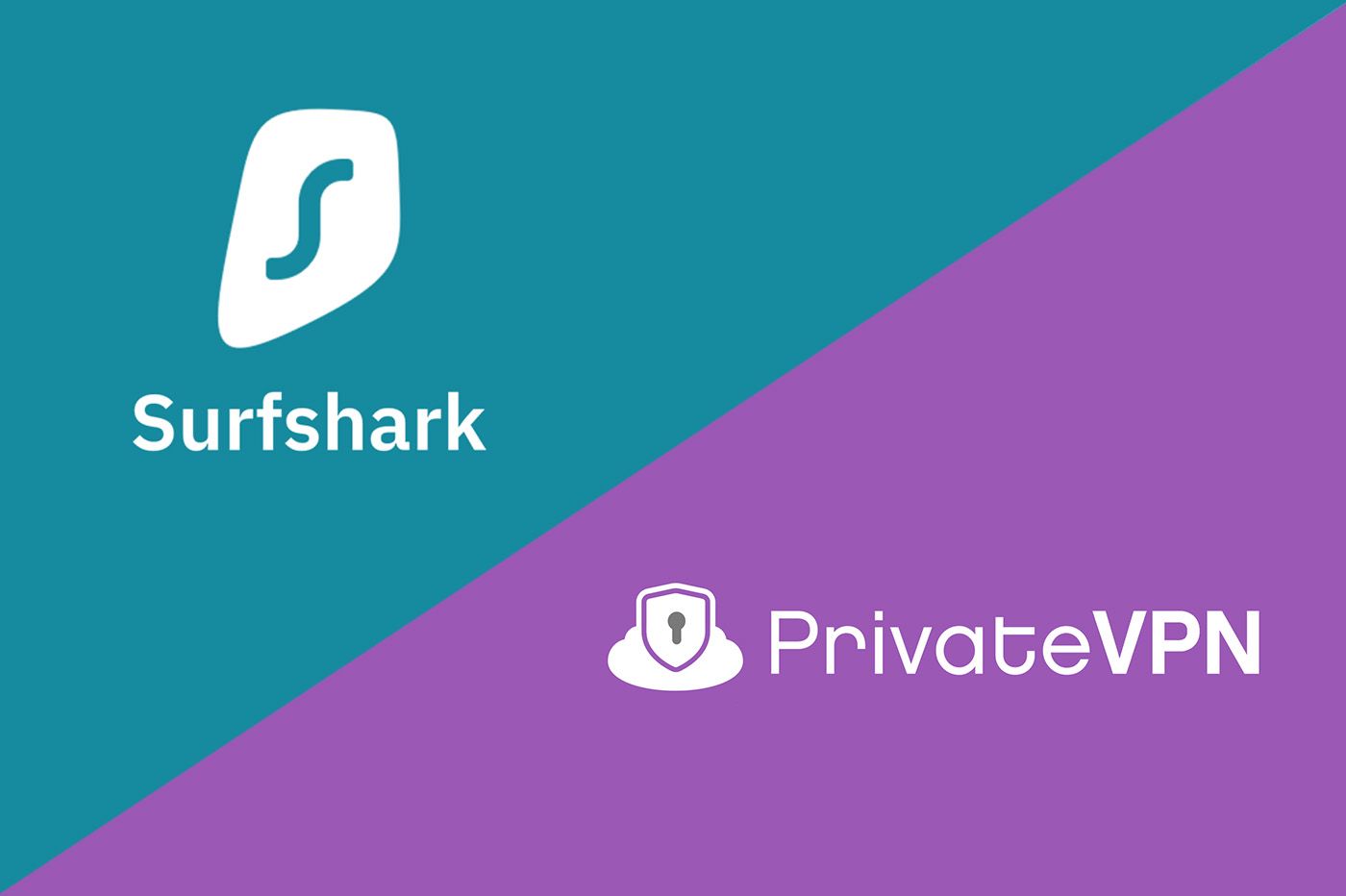
PrivateVPN vs Surfshark: Apps & Ease of Use
The first contact with the VPN is always through its app. That’s why it’s vital that the app is easy to use and set up. In this regard, PrivateVPN and Surfshark excel, so even if you’re a newbie, setting them up won’t be an issue. The good thing is that both support a wide array of platforms.
This means that PrivateVPN and Surfshark work on Windows, macOS, Linux, iOS, and Android. However, we should also mention that they’re both compatible with “non-typical” systems. For instance, they offer a VPN for Kodi, Apple TV, Fire TV Stick, routers, gaming consoles, and other platforms.
What’s more, we’re talking about native apps for pretty much all of them, except for Apple TV and gaming consoles that don’t support VPNs out of the box. Now, in terms of simultaneous connections, Surfshark VPN has one tremendous advantage over PrivateVPN.
Namely, it offers UNLIMITED connections in each subscription. On the flip side, PrivateVPN has just 10, which isn’t a small number but sounds small compared to Surfshark. You simply can’t beat unlimited simultaneous connections, can you?
PrivateVPN
Ease of use is a strong point for both services. PrivateVPN’s apps look fairly decent, with the ones on the desktop being more feature-rich. It’s a neat, purple-white interface that lets you connect to a server in a single click and tweak various options and features without too much hassle.
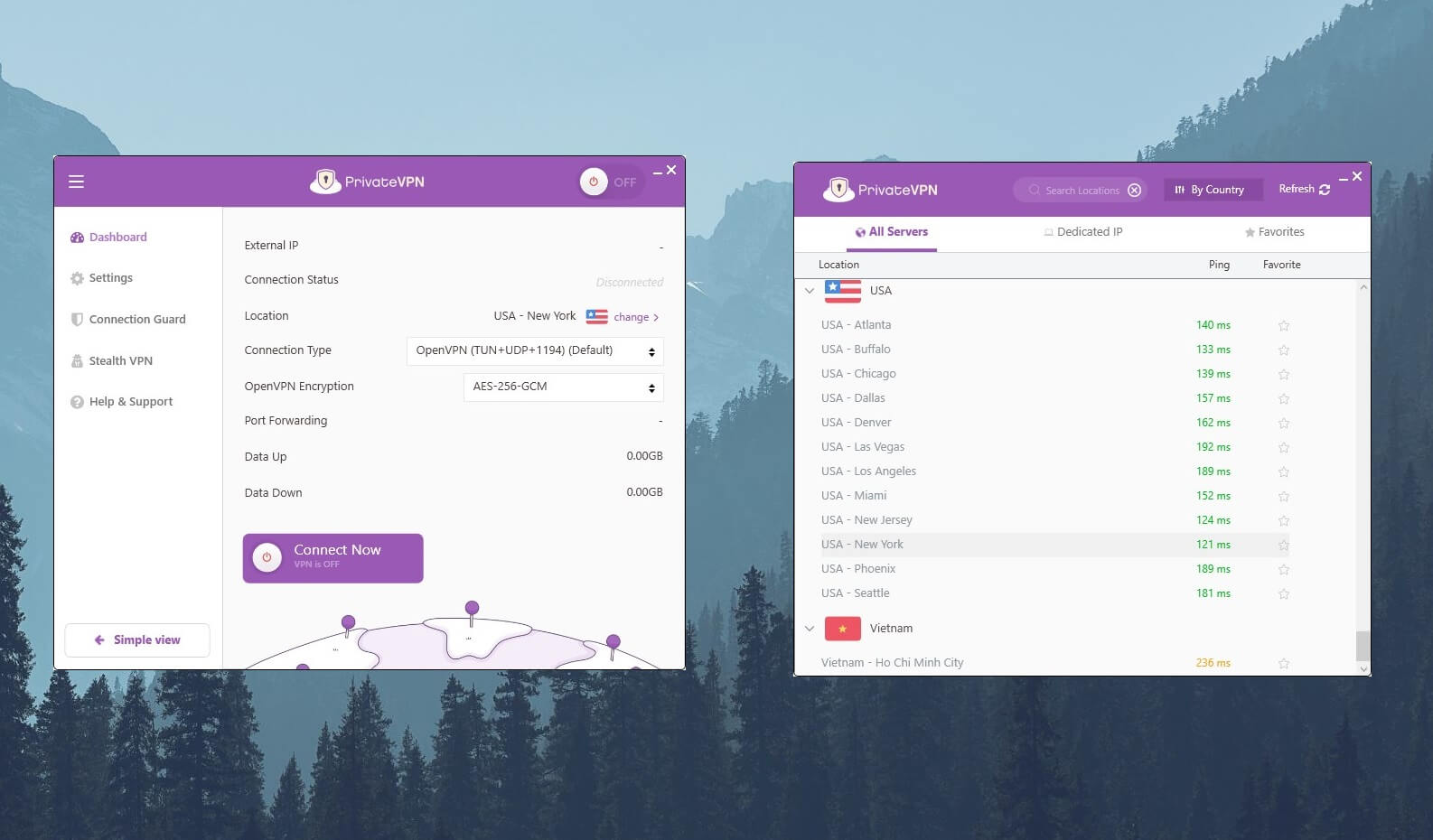
You have a big connection button on the home screen, which you can use to connect immediately. Connection speeds are a bit slower since it relies on OpenVPN and not WireGuard. Still, the app is bug-free and we love the option to quickly alter the level of encryption and protocols.
The server list is done beautifully, with each location having the ping in milliseconds for easier understanding. You can, as such, choose the server with low ping for gaming. On the left side, you’ll find some of the most important features.
There’s a Stealth VPN, Connection Guard, and basic behavioral settings. From here, you can enable a kill switch, turn on IP leak protection, and so on. PrivateVPN’s Windows and macOS apps are pretty much identical, so if you’re using both platforms, getting used to both is a breeze.
The mobile app takes the same approach. However, it’s still a mobile app, with a few features missing. We like that mobile users get a kill switch, though, with the apps that work flawlessly on iOS and Android. For the price, it’s one of the better apps we used.
Surfshark
Surfshark is a more premium-feeling VPN, we must say. Its apps look darn impressive, with the option to adapt their visuals to your system’s color scheme. The app on desktop platforms is smooth and snappy, with connection speeds far faster than PrivateVPN.
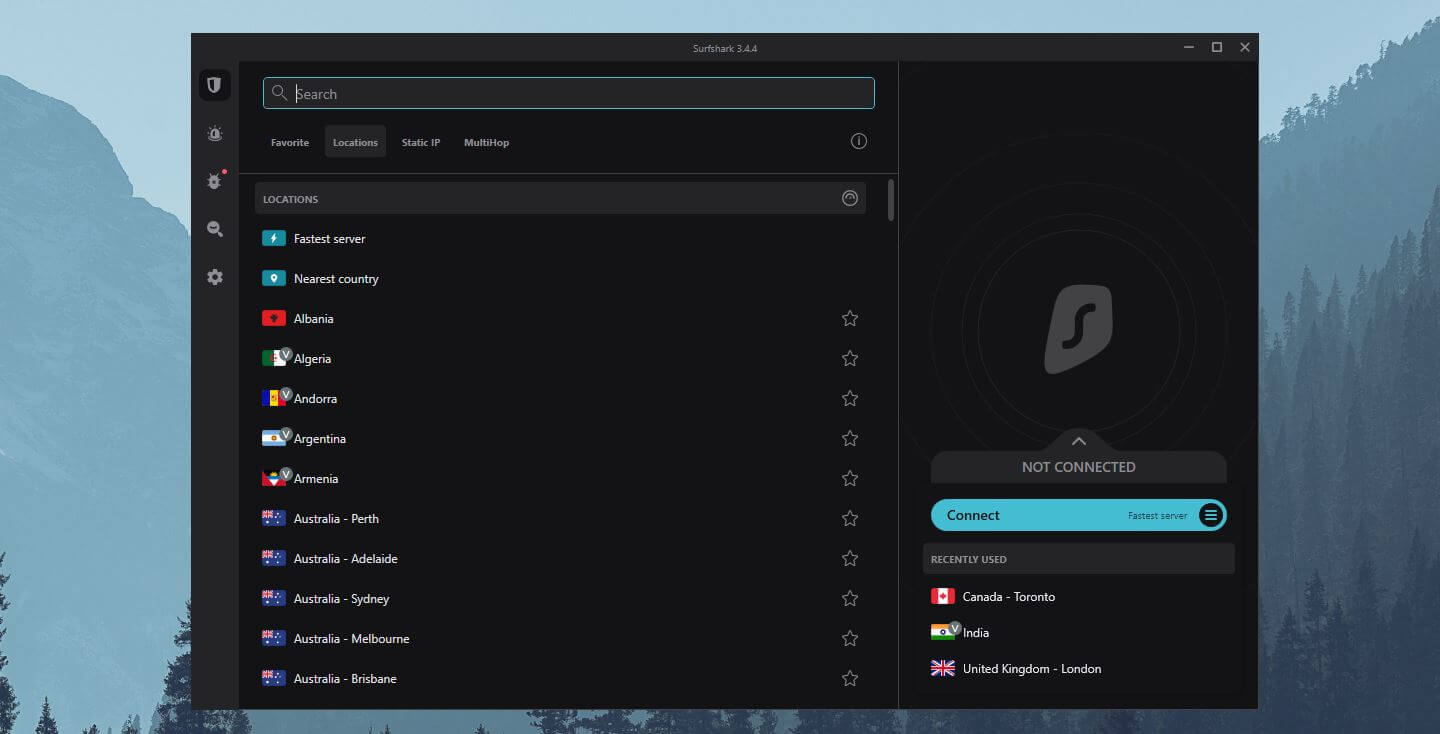
In this Surfshark vs PrivateVPN duel, we also liked how simple Surfshark is to use. One-click is all it takes to connect to a server, for example. And in the same fashion, you’ll find its relevant options and settings on the left-hand side.
Users can easily access even bonus features like antivirus, which can perform a quick scan once opened. Then, in the Settings menu, you’ll find the option to switch to another protocol, enable split tunneling, and even take advantage of GPS Override for geo-spoofing.
Surfshark VPN is extremely well-made, with clearly displayed options and servers. The server list has no additional data about servers, such as ping and distance. However, this isn’t a problem, especially because you get clear information about which server is physical or virtual.
iOS and Android apps for Surfshark are masterfully realized. They sport the same-looking interface and even share a heap of features from the desktop platforms. This means you get almost the same protocols, security features, and other tiny nit-picks.
Who Wins?
In this part, Surfshark WINS. It offers unlimited simultaneous connections, along with better-looking, more optimized apps for all platforms. PrivateVPN is by no means “bad” or underwhelming but Surfshark is simply too powerful and polished.
Security & Privacy: Which One Is Safer to Use?
Let’s face it. The two most important factors of a VPN service are security and privacy. Why even use a VPN if it’s not safe in the first place? The good news is that, in this PrivateVPN vs Surfshark VPN duel, both excel in these parameters. But which is safer and more secure? Let’s find out.
Security Features
VPNs function the same at their core, so many features are shared between multiple services. As such, Surfshark and PrivateVPN have many similar options. For example, both use AES-256-bit encryption. PrivateVPN lets you choose between several types of encryption, though.
However, you won’t notice any difference, as each of the offered encryption types is safe enough. Moving on, both providers have an automatic kill switch and IPv6/DNS leak protection. Important to mention is that Surfshark has this NoBorders mode.
It’s basically obfuscation for getting over censorship. PrivateVPN has a Stealth VPN, which is the same. It masks your VPN connection to make it look like a “normal” connection. In terms of protocols, they have OpenVPN, with PrivateVPN adding IKEv2, PPTP, IPSec, and SSTP on top.
What Are the Differences?
Security-wise, Surfshark is superior to PrivateVPN and you’ll see why in this part. First, PrivateVPN supports WireGuard but only through the manual setup, which most users will find complex. Surfshark comes with WireGuard UDP/TCP out of the box, on all apps, across all supported platforms.
Moreover, PrivateVPN has no split tunneling, which is a huge missed opportunity. Of course, its rival packs this feature, which works flawlessly and without issues. This provider also comes with an ad blocker called CleanWeb, plus, there’s this Rotating IP option.
It’ll rotate your IP periodically while keeping the VPN location the same. Let’s not forget that the provider includes Antivirus, which helps clean your PC from dangerous infestation. And to make things better, features like Alert and Search are also here. More about them in our review of Surfshark.
Interestingly, the provider offers a smart solution called Alternative ID. It lets you create an alternative online identity and go online anonymously, without ever exposing your real email address. Quite handy!
Mobile versions of Surfshark also support GPS Override, which is essential for geo-spoofing while playing Pokemon GO or bypassing other, more demanding geo-restrictions. PrivateVPN has port forwarding, which Surfshark lacks. And in all honesty, it doesn’t need it.
To counterattack, Surfshark offers dedicated IP addresses plus MultiHop servers for doubling your encryption. PrivateVPN has dedicated IP addresses too but lacks any form of Double VPN (MultiHop). As you can see, there are plenty of crucial differences.
Is There a No-Logs Policy?
The jurisdiction of a VPN is important when talking about privacy. To be clear, neither of the providers in this Surfshark vs PrivateVPN has perfect jurisdiction. PrivateVPN is based in Sweden, a country from the 14 Eyes. Unlike Switzerland, its privacy laws aren’t the best.
However, PrivateVPN still maintains a no-logs policy, which sounds promising. It stores no logs of your IP address, DNS requests, internet history, geolocation, and so forth. Let’s also take into account that only basic info is stored, which isn’t going to compromise your privacy in any way.
Find out more in our PrivateVPN review.
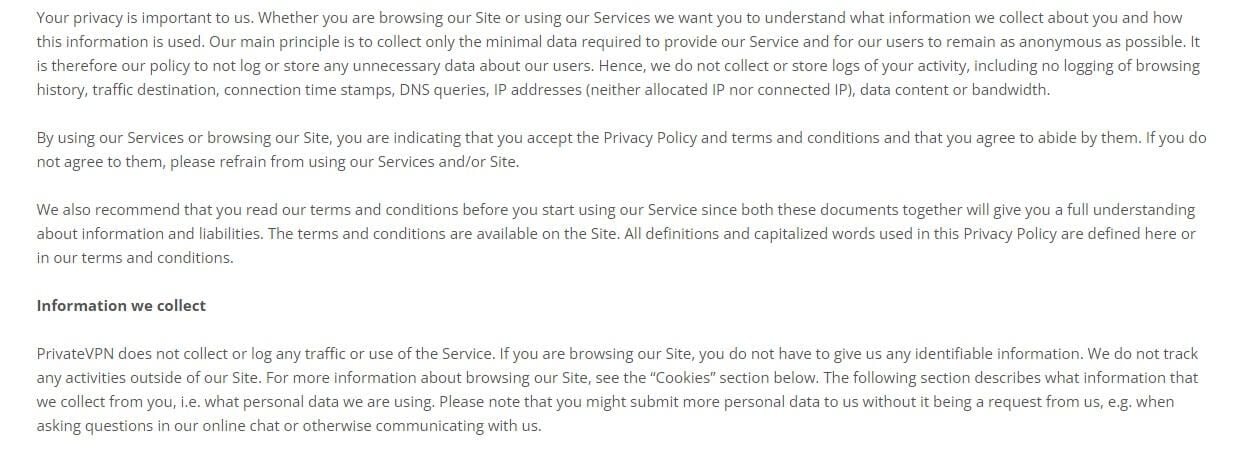
Surfshark, on the other hand, resides in the Netherlands. Years ago, it was based in the British Virgin Islands, which was a lot better. The Netherlands is yet another country with far from the best privacy laws. On the other hand, Surfshark is more trustworthy.
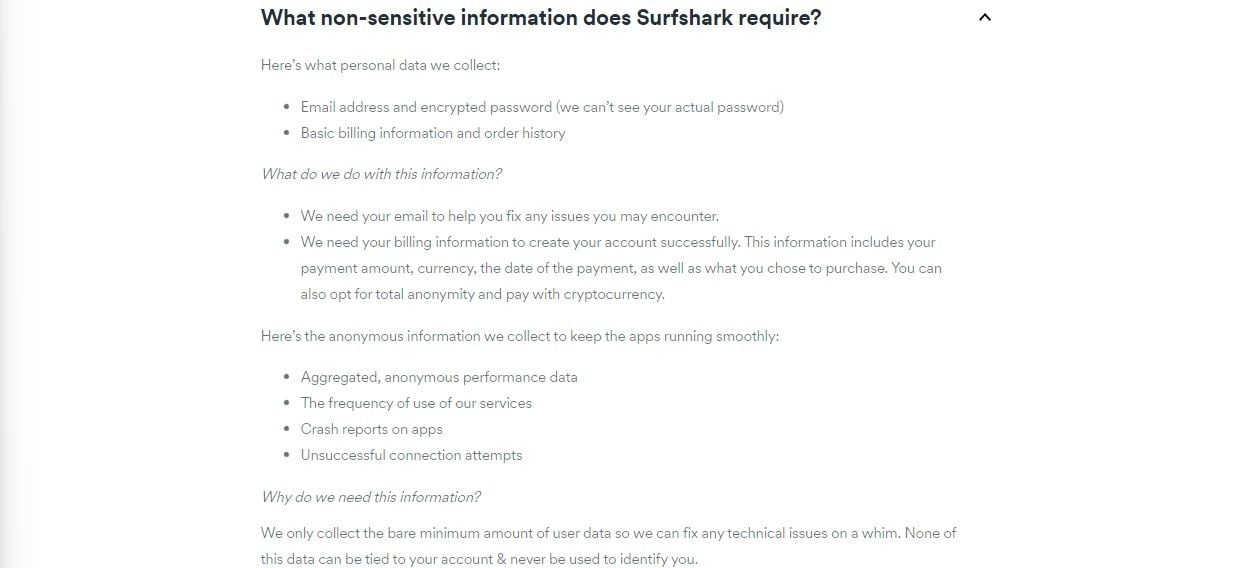
As you can see, the same no-logging policy applies here. No traffic logs, timestamps, IP addresses, and other bits of information are on its servers. The difference is that Surfshark VPN has several security audits from some of the most renowned companies in the world.
PrivateVPN has NO third-party audits to prove its claims. In the case of Surfshark, we’re talking about Cure53 and Deloitte, for example. The latter is especially powerful and popular, as it audited ExpressVPN and NordVPN – two of the best VPN providers you can get, along with CyberGhost.
Another nail in the coffin for PrivateVPN is that it has no RAM servers. Surfshark bases its servers on RAM, which means no additional logging. Private DNS is here in both VPNs, so your ISP won’t be able to track your DNS queries. Still, with the lack of RAM-only servers, PrivateVPN is underwhelming.
Who Wins?
After a long and hard battle, Surfshark VPN WINS this part of the duel against PrivateVPN. After all, this provider has more security features and is more trustworthy, thanks to several third-party audits that PrivateVPN lacks. In short, it is indeed a safer and more secure provider for the money.
Surfshark VPN vs PrivateVPN Streaming Test
Knowing how cheap Surfshark is, you can almost certainly bet it’ll be lackluster in terms of streaming. Well, you’d lose that bet in a blink of an eye! In this PrivateVPN vs Surfshark analysis, we found the latter extremely reliable for watching geo-restricted content.
In spite of its affordability, Surfshark is going to work with at least 10 Netflix catalogs. We’re talking about ones from Canada, the UK, the US, Australia, Japan, and others. On top of that, its Indian servers can unblock Hotstar outside of India, which not many providers can do.
Let’s also mention the ability to watch foreign TV channels – even those from the US. Surfshark allows you to access your favorite content with ease, and while its performance isn’t the best, its speeds are enough for a quality streaming session in 4K.
PrivateVPN advertises itself as being reliable for streaming. It is when it works but the problem is, it works rarely – uh, oh! Our tests showed that PrivateVPN won’t unblock any of the major Netflix libraries, even when using different protocols and changing the level of encryption.
The same can be said about other streaming services, with very few exceptions here and there. Interestingly, it can’t even unblock more popular US TV channels, as it’s frequently detected. The streaming performance is okay, despite its speeds being not better than average.
In terms of unblocking geo-restricted content, don’t expect too much. It’s going to work with SOME platforms but not always and not reliably. At least you get unlimited traffic, so when it works, you can sit down, relax, and binge-watch content day and night.
Who Wins?
Surfshark WINS this part without hassle. It easily works with everything you throw at it, be it Netflix or a particular TV channel. PrivateVPN fails to unblock prevalent streaming services that people easily access even with cheaper providers like Atlas VPN. We hope to see some improvements in this regard.
Surfshark vs PrivateVPN Speed Comparison
So far, Surfshark has beaten PrivateVPN significantly, with a perfect score. But, when talking about the sheer performance and power, which one should you buy – PrivateVPN or Surfshark VPN? In this test, we’ll see which provider is faster in terms of upload and download speeds.
Before we move on to our test results, we need to clarify a few parameters.
The first parameter is our native internet speed. It’s displayed below and it’s done without using a VPN. By the way, we were located in Europe at the time of writing the Surfshark vs PrivateVPN comparison.
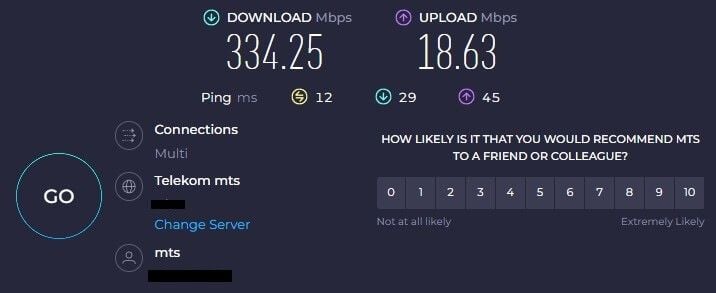
The second parameter is our testing procedure. We test each provider 3 times a day, 3 days in a row, using 4 server locations that include the UK, the US, Australia, and Japan. One more thing is the protocol selection. We aim for the fastest one.
Thus, we used WireGuard for both services. Surfshark supports it from the app, while we went for the manual setup using PrivateVPN. With that out of the way, here are the speed test results, so let’s check them out together and comment on them afterward.
Surfshark
UK:
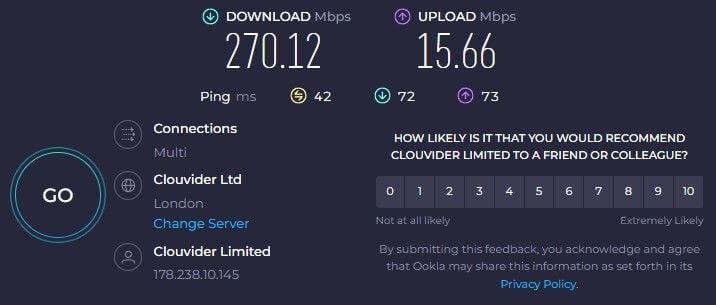
US:
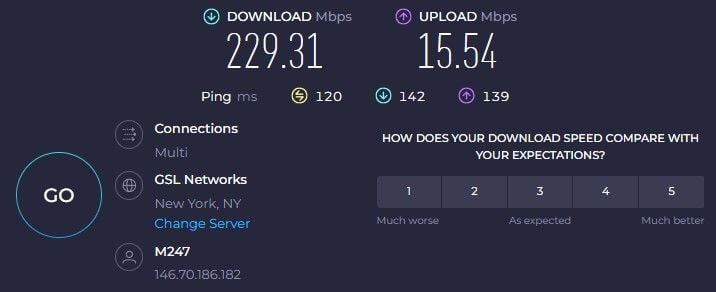
Australia:
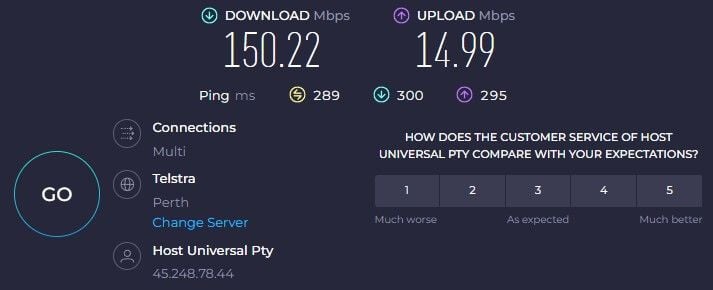
Japan:
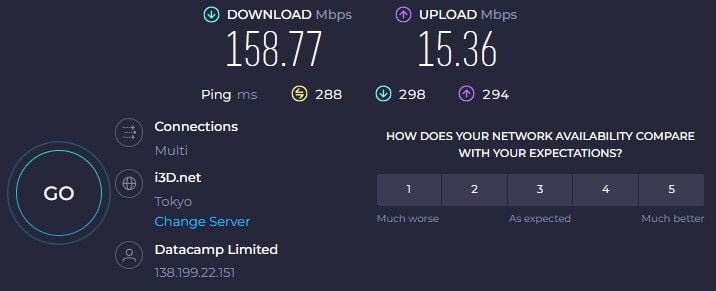
PrivateVPN
UK:
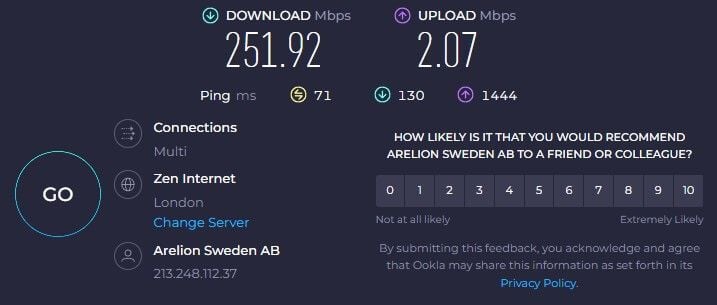
US:
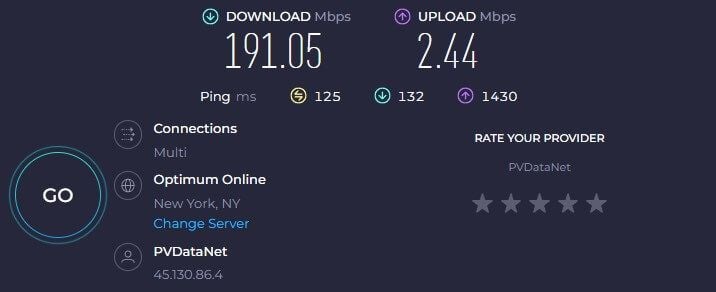
Australia:
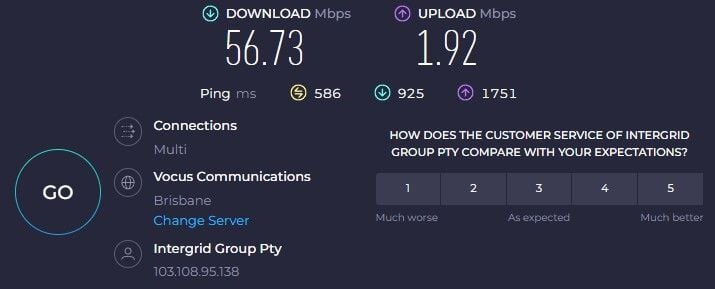
Japan:
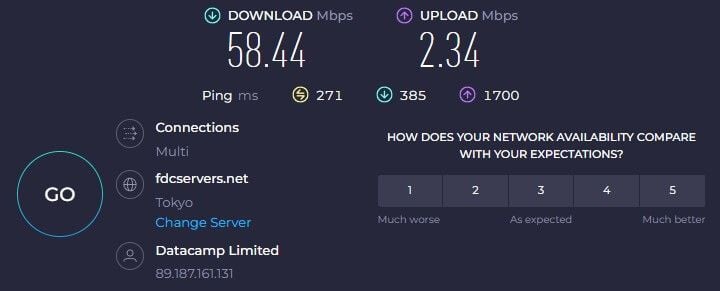
Who Wins?
As you can see, Surfshark once again WINS the duel against PrivateVPN. While not the fastest VPN provider by any stretch, it’s still a better performer than PrivateVPN. Its download and upload speeds are always a bit higher, especially when using more distant servers in Japan and Australia.
In practice, Surfshark also seems to perform better than PrivateVPN. Page-loading times are shorter, with lower ping while gaming on PC and gaming consoles. Along with better streaming and torrenting speeds, the Swedish provider takes a beating in yet another round.
Torrenting: PrivateVPN or Surfshark VPN?
Since we’re at torrenting, let’s talk about it in our Surfshark VPN vs PrivateVPN duel. As you already know, these are premium providers, which means torrenting is never out of the window. In fact, premium options are recommended for an activity like this rather than free VPNs.
What about Surfshark? Well, you won’t find any dedicated P2P servers on its list but that doesn’t mean it doesn’t allow torrenting. All of the 3,200 servers are indeed optimized for torrenting. Just connect to the closest one and start downloading; here’s proof:
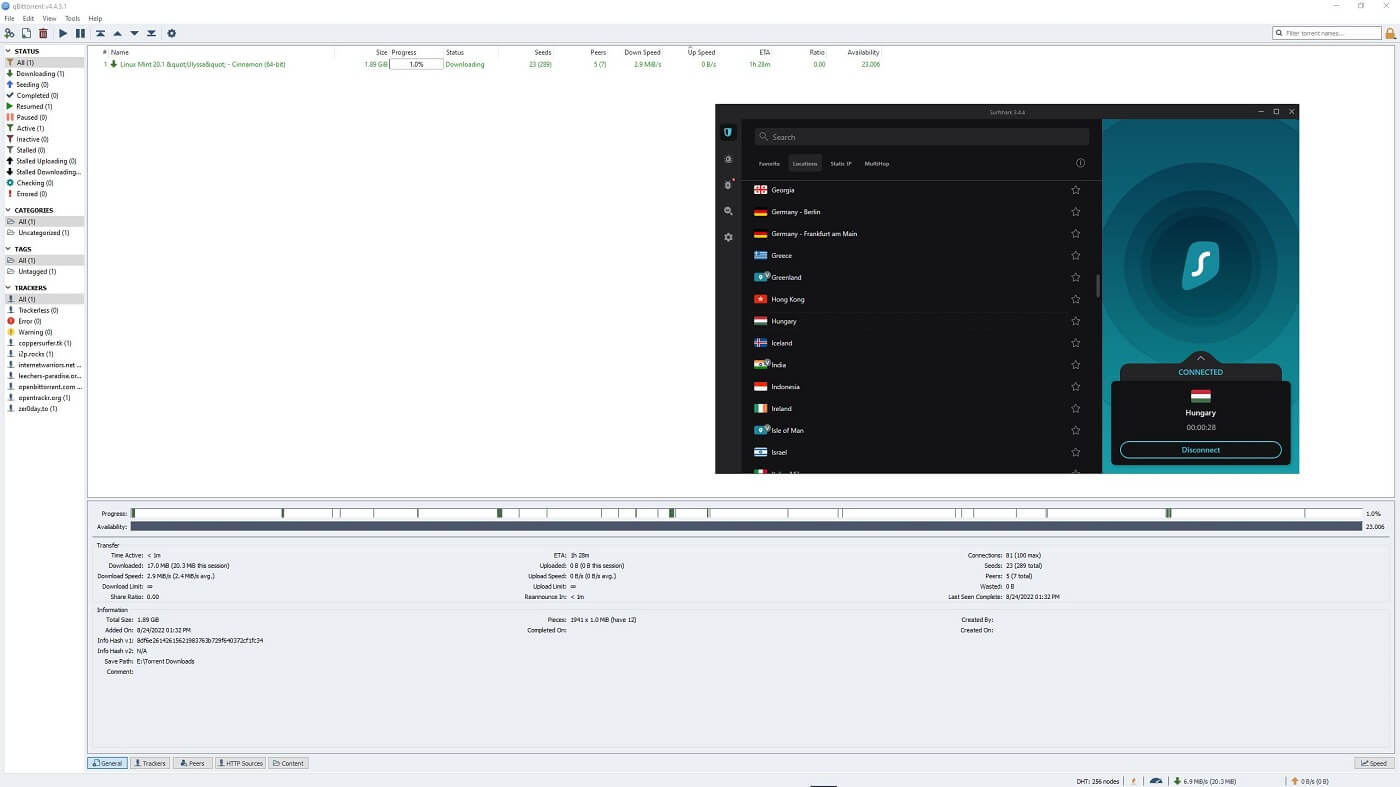
Download and upload speeds are almost impeccable, with little to no speed reductions. PrivateVPN also has no special P2P servers but it doesn’t need them, as the entire fleet is P2P-usable. Once again, you have to do the same – connect to the closest server to minimize speed losses and enjoy.
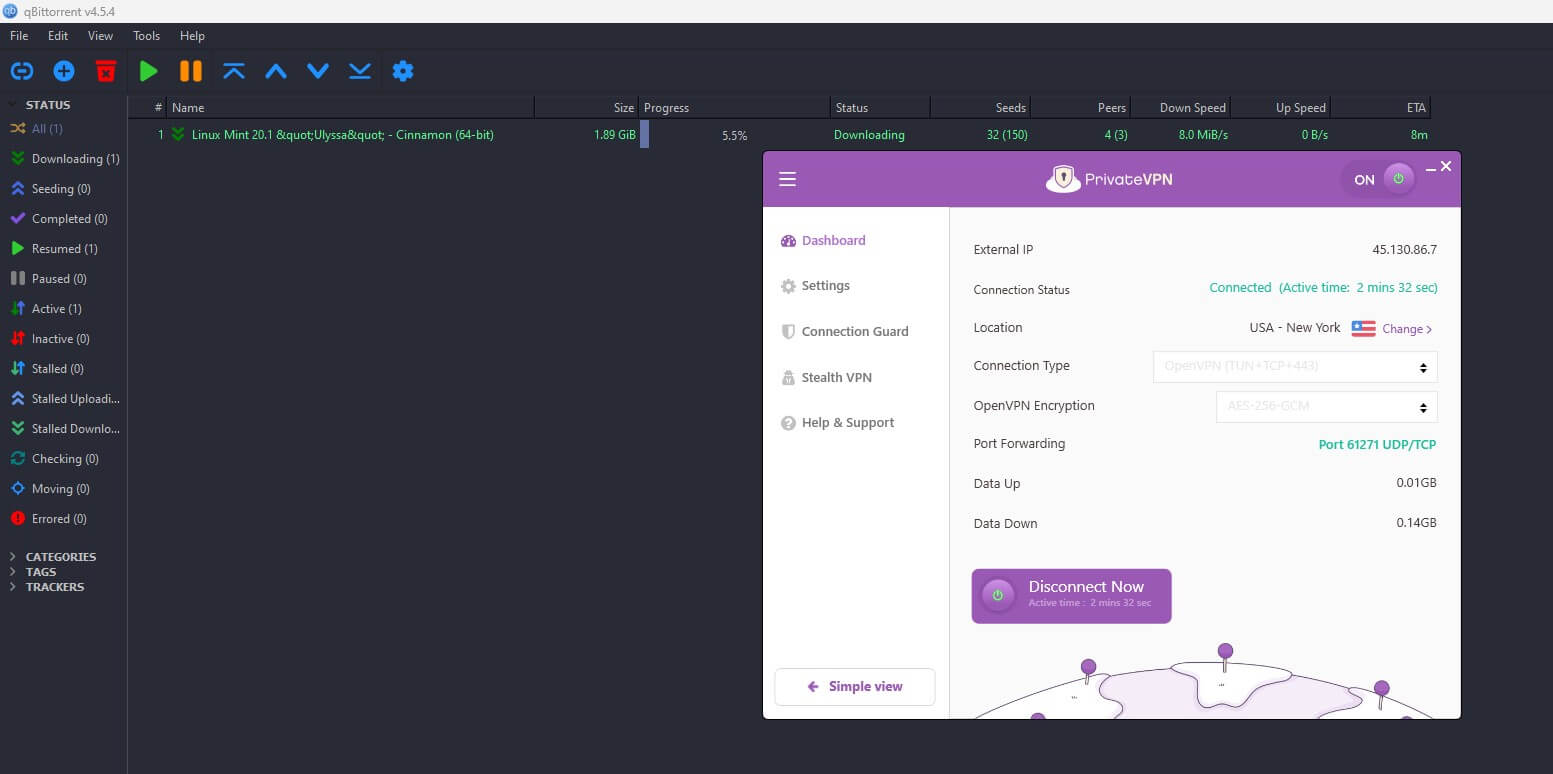
You can gain a bit of boost by using port forwarding, however. Our team is against that, as you won’t gain much in terms of performance but you’ll lose a bit of anonymity. Port forwarding isn’t the safest option for VPN users, as explained in our dedicated port forwarding guide.
Who Wins?
Torrenting is safe with PrivateVPN and Surfshark, so this round is a DRAW. After all, both services excel in privacy/security while keeping their speeds are the very top during the entire torrenting process. More distant servers will reduce your speeds but using them makes no sense for P2P activities either way.
Are Surfshark and PrivateVPN Working in China?
China is among the most troublesome countries for VPN providers. It’s a problem even for ExpressVPN and NordVPN, let alone these lower-tier services. Surfshark is, however, slightly lower on the tier list compared to the two options. PrivateVPN is even lower – as you can see.
Regardless, these providers have their versions of obfuscation. In Surfshark VPN, we have NoBorders, while PrivateVPN gives you Stealth technology. Right off the bat, we’ll say that PrivateVPN isn’t the best choice in terms of getting over censorship, so it won’t always work.
However, it’s good to know that Stealth will allow you to get over the Great Firewall from time to time, as long as you’re using strong encryption and OpenVPN TCP. This still isn’t a bad result given that ProtonVPN, Hide.me, and many others don’t work AT ALL in the country.
Surfshark’s NoBorders shows decent results as well. It’s about on par with PrivateVPN, with ever so slightly better results on some occasions. Here, we also recommend using OpenVPN or WireGuard TCP since the UDP protocol isn’t suited for bypassing censorship.
When both providers work, Surfshark is slightly faster than PrivateVPN, although nothing to write home about compared to NordVPN or ExpressVPN. You’ll have better luck with both options in countries like the UAE, Russia, and Turkey, for example, where Stealth VPN technology has better results.
Who Wins?
This PrivateVPN vs Surfshark VPN duel ends up in a DRAW. We can’t say these are the magnum opus solutions for circumventing censorship. We also can’t state they’re bad. With average performance in China and other censored countries on both sides, this seems like the only logical outcome.
PrivateVPN vs Surfshark Server Fleets
For many, a big server fleet is of the utmost importance. This is especially true if you’re traveling a lot and you want to be able to get around geo-blocks wherever you are. In this regard, which provider does a better job, PrivateVPN or Surfshark?
PrivateVPN (200 servers in 63 countries)
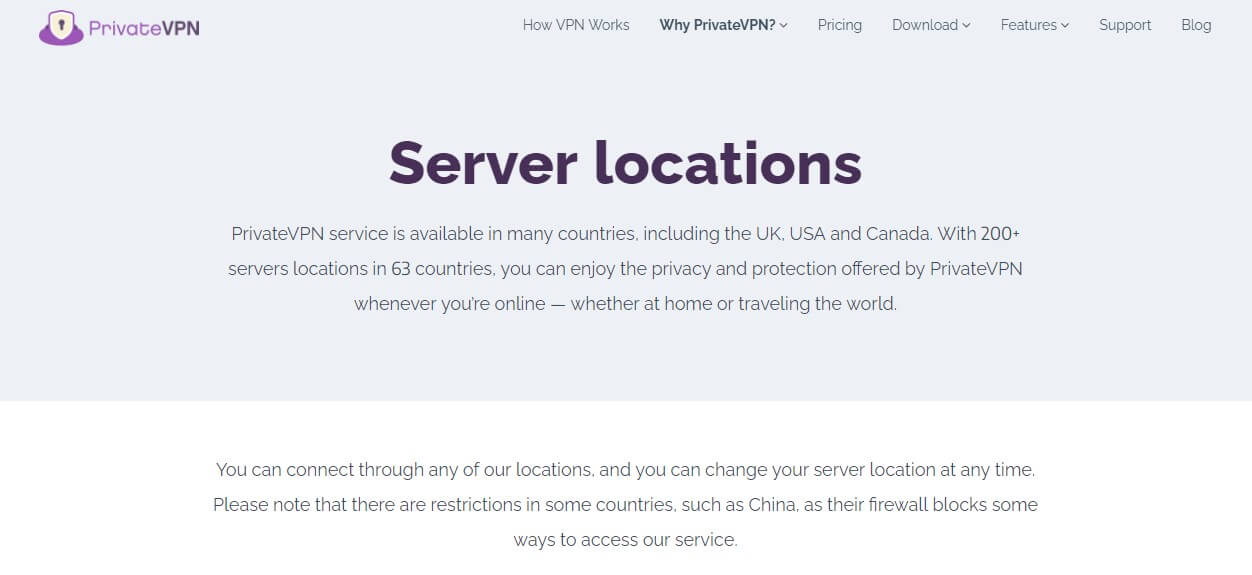
Starting with PrivateVPN, you can see its server fleet is… well, not the largest. We’d venture to say it’s actually among the smallest in the premium segment! Just think about it – 200 servers in 63 countries – not even 500 servers on the list. Such a shame!
PIA VPN has servers in 84 countries and 30,000 at that! This provider is a huge disappointment and will surely be a victim of overcrowding, and by extension, slower and unstable performance. At least its server distribution is decent, as you get servers in the most popular countries.
For example, its US servers are numerous, while European and Asian servers are also there. We like that it has servers in the UAE as well, which ExpressVPN lacks. The provider has no dedicated servers and the network is based on traditional HDD-s rather than RAM.
PrivateVPN has 10+ Gbps servers, which can be seen in the speed test results. But if you’re expecting to have thousands of picks waiting for you, you’ll be gravely disappointed. Something like that can be expected from Surfshark – read on.
Surfshark (3,200 servers in 100 countries)
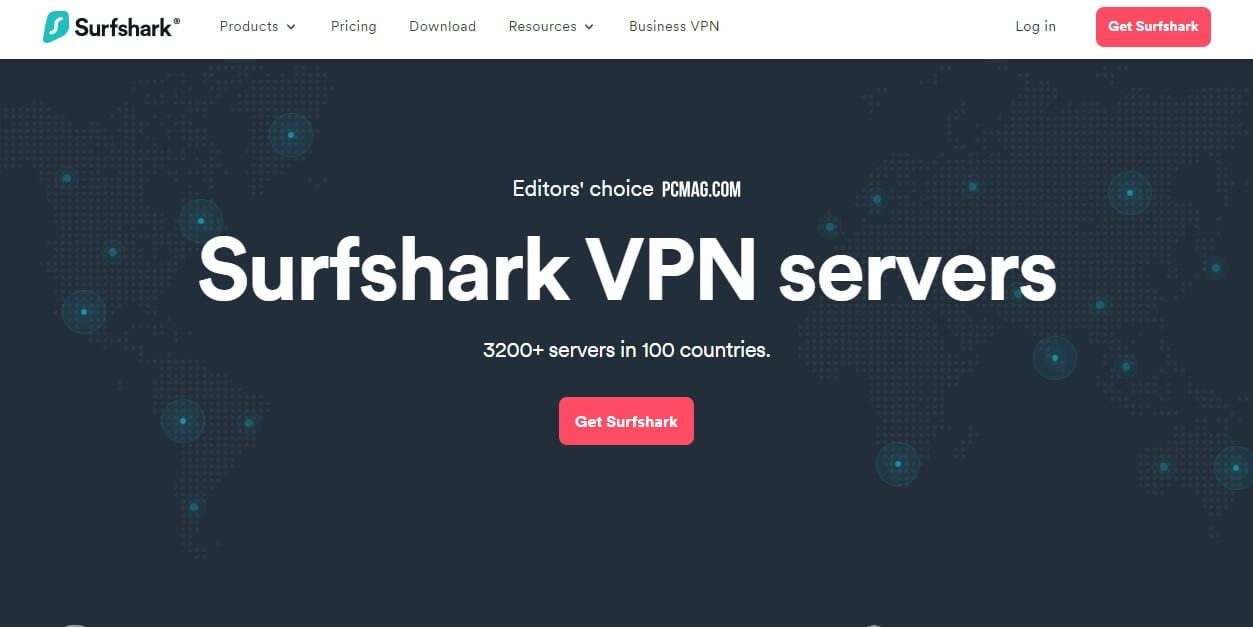
As you can see, the provider has 3,200 servers in 100 countries. These two numbers already make PrivateVPN’s bleak server network sound and look even bleaker. We think we don’t need to talk too much about how quality and robust this server network is.
First, these are RAM-only, 10+ Gbps servers. Then, we’re talking about hundreds of servers in the most popular countries, all capable of streaming, torrenting, gaming, and using Tor. This means you can freely frequent the dark web with this VPN, thanks to superb security and performance.
Surfshark has additions of dedicated IP addresses plus MultiHop, which adds to the quality tremendously. The MultiHop is fully customizable, so you can choose both servers and the VPN will route your traffic through them to double your encryption.
Overcrowding is a thing of the past here, as the traffic is distributed across 3,200 servers. Sure, it’s not faster than ExpressVPN but it can be seen why its network stability and performance are much better than PrivateVPN. We think things are already pretty clear.
Who Wins?
Without a doubt, Surfshark WINS this round and mops the floor with PrivateVPN. For those too lazy to read the entire thing, its 3,200 servers (100 countries) easily beat PrivateVPN’s 200 servers (60+ countries) and that’s everything you need to know.
Customer Support: PrivateVPN or Surfshark VPN?
In our PrivateVPN vs Surfshark VPN duel, customer support might not be very important. Still, it’s a vital part of every service that we must test. Both providers come with 24/7 live chat support. This makes your life easier, as getting the required help can be done in a minute.
Of course, email support is here too, and it’s quick in both cases. Still, Surfshark has a team of professionals handling the support requests, while PrivateVPN relies on its developers. It sounds kinda cool to talk to developers directly but the downside is that they’re not very quick to respond.
For instance, Surfshark’s support takes about 5-10 seconds, while PrivateVPN takes around a minute to respond via live chat. Email support of Surfshark is a lot faster too, with better, more professional answers that lead to a quick solution to the problem or inquiry.
We like that both providers have enticing blog sections, with FAQs and how-to guides you’ll easily find. Of course, phone support won’t be there but VPN services usually don’t offer something like this. A recently tested provider, Norton Secure VPN, offers it but it’s far from these two in terms of quality.
Who Wins?
Overall, Surfshark WINS this round against PrivateVPN. Its customer support manages to be slightly more reliable, with a better, more available support team. In addition, its email support is a tad faster to respond, which is great when you don’t feel like chatting or simply don’t need urgent help.
PrivateVPN vs Surfshark VPN Pricing Comparison
After all of the exhausting tests so far, we have only one left. If you’re looking to save some cash on a VPN, should you buy Surfshark or PrivateVPN? This final test will tell you what you want to know. Just be aware that this test is, let’s say, rigid in a way.
PrivateVPN
That’s because we take only the price into account. Even if a VPN is worse but it’s cheaper, it will win the round. That said, let’s start with PrivateVPN and see how much it costs at the time of writing this article.
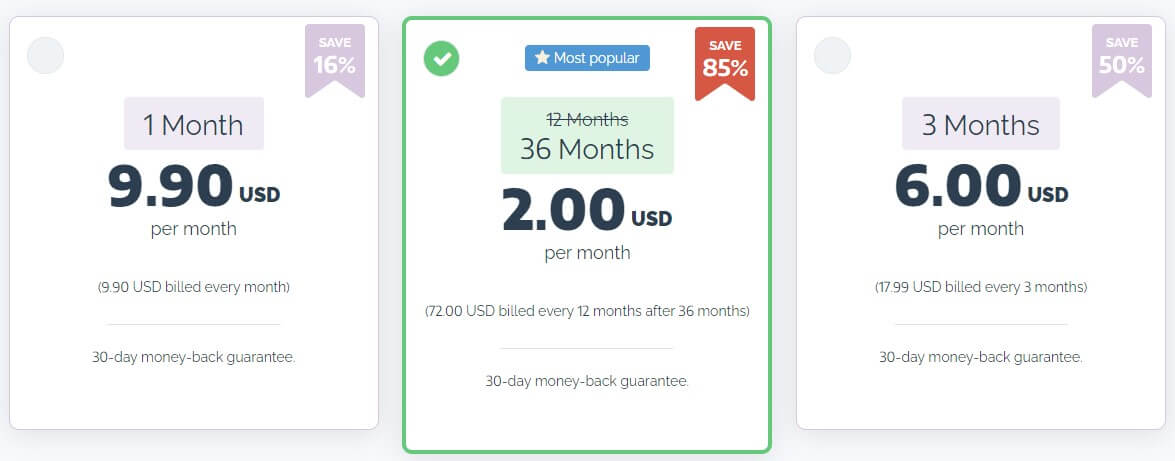
At this time, there are 3 subscription plans to pick from. All plans are under a discount, with the one in the middle offering a whopping 85% discount. This is a 3-year plan at $2/mo or $72 upfront for the first 3 years. The renewal price is different, however, as you’ll be charged the same but every 12 months.
Its monthly plan is fairly affordable, though, at $9.9 a month. Even the 3-month plan at $6/mo sounds quite cool, as you’ll pay only $18 every 3 months. Of course, PrivateVPN includes a 30-day refund policy for all plans, so each purchase is refundable in case you’re unhappy with what you got.
Surfshark
Surfshark’s pricing structure is a lot more complicated and requires a bit more examination. Its plans are divided into three groups. We have 3 2-year, 1-year, and monthly plans, which are 9 plans in total. Its 2-year variants are the cheapest, so let’s take a look at them:
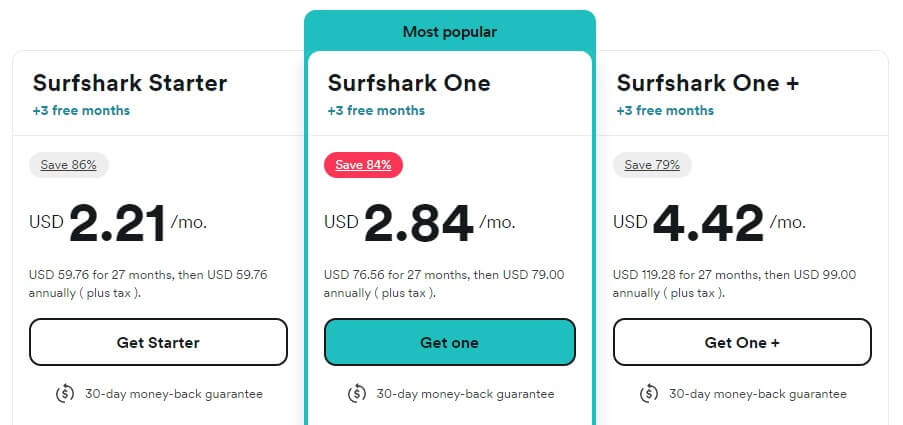
The 2-year plan called Surfshark Starter is displayed below, just above $2.2 a month. Then, we have the “One” plan at above $2.8/mo, with the most expensive option “One +” which includes ALL features at above $4.4/mo. Generally speaking, the best options are the first two plans.
They’ll offer all of the features we discussed in this PrivateVPN vs Surfshark battle. Plus, the price you’ll pay in the first two years is the one you’ll pay annually once this period expires. And as you can see, this price, for the Starter plan, is indeed a lot cheaper than PrivateVPN’s cheapest plan!
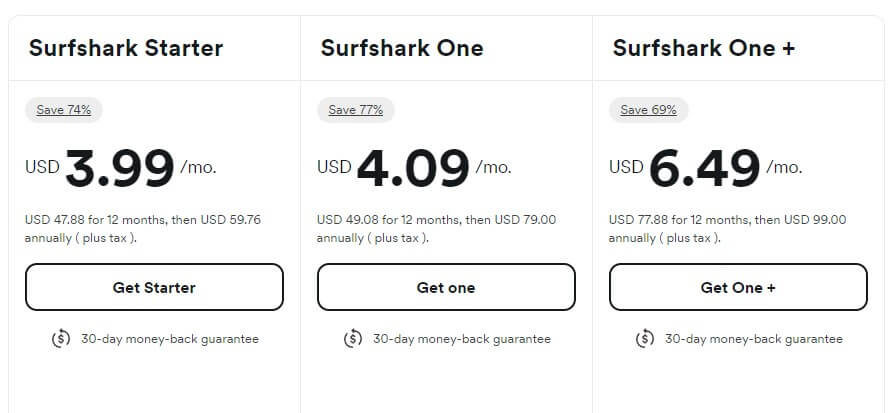
Even when looking at its annual plans, Surfshark VPN remains affordable. The Starter plan, even in this case, is cheaper than PrivateVPN’s most affordable offer. One and One + plans end up being more expensive but they also offer some of the most advanced features.
Finally, we should quickly address its monthly plans. They’re way too expensive in 2025, costing from around $15 to $20+ a month. In this case, PrivateVPN is cheaper but that isn’t particularly important because monthly plans are rarely sold.
Who Wins?
In this round of the duel, Surfshark WINS by being more affordable than PrivateVPN in the long run. Its Starter plan, which is enough for most people, will be drastically cheaper than PrivateVPN. If you opt for One and One + plans, you’re still looking at a higher price but also more features.
Conclusion: Surfshark Wins!
At the end of the day, you can clearly see which provider is better – Surfshark or PrivateVPN. By doing the math and counting all the rounds, Surfshark WINS with a score of 9:2. A pretty impressive win, we must admit. Even though PrivateVPN isn’t bad, Surfshark was too good for it to win.
Torrenting and bypassing censorship is where PrivateVPN held its ground, no doubt. Also, its apps, security, and privacy are more than solid, even though it lacks third-party audits. Unfortunately, in other aspects, the Swedish VPN provider failed to impress us.
It has no impressive performance, isn’t great for streaming, and offers just 10 simultaneous connections compared to unlimited in Surfshark. Let’s not forget its steep price increase after the initial discount period, which makes PrivateVPN somewhat expensive.
In short, our recommendation is to go for Surfshark. Given its higher overall quality and better performance, coupled with attractive pricing, there’s no reason to buy PrivateVPN at this point. Grab Surfshark’s discount and indulge in safe, secure, and fast internet browsing.